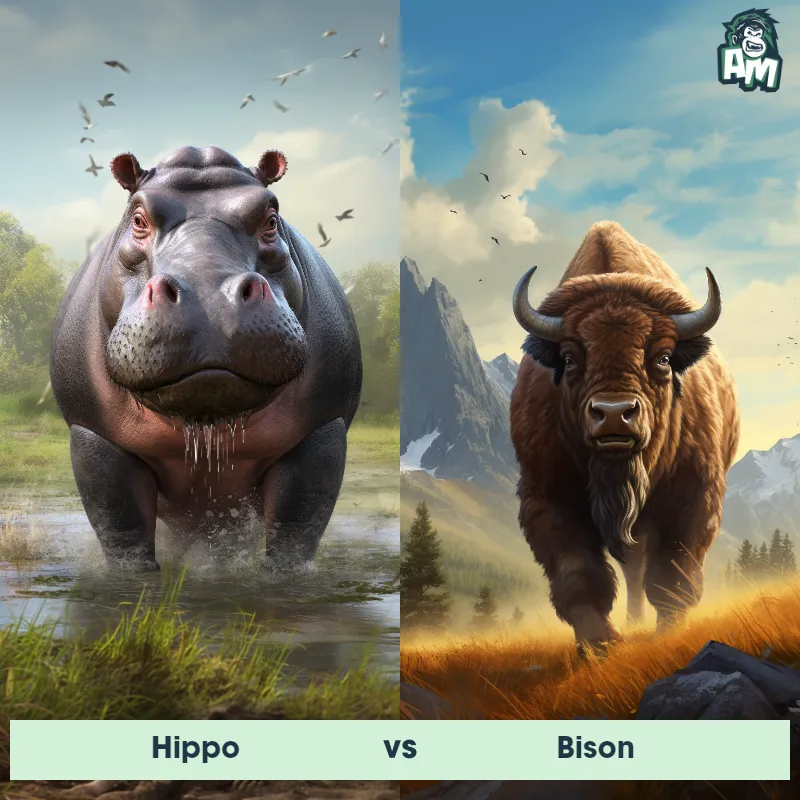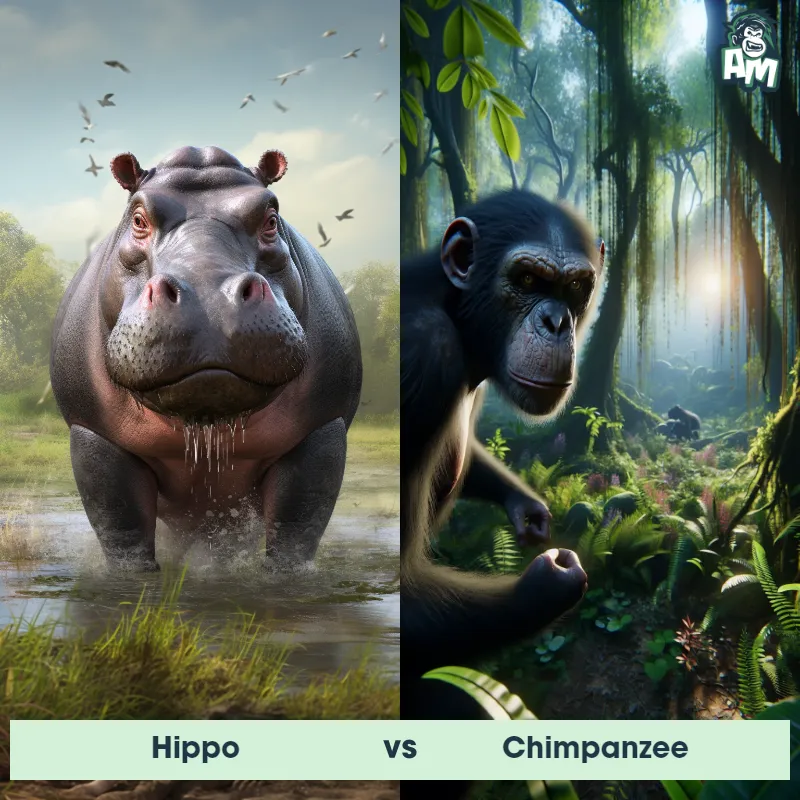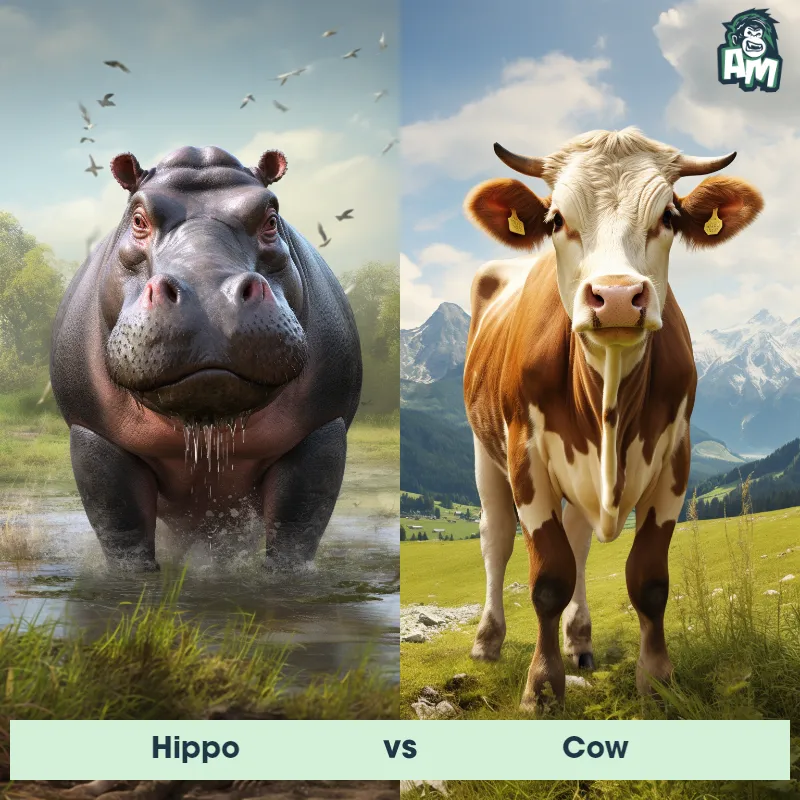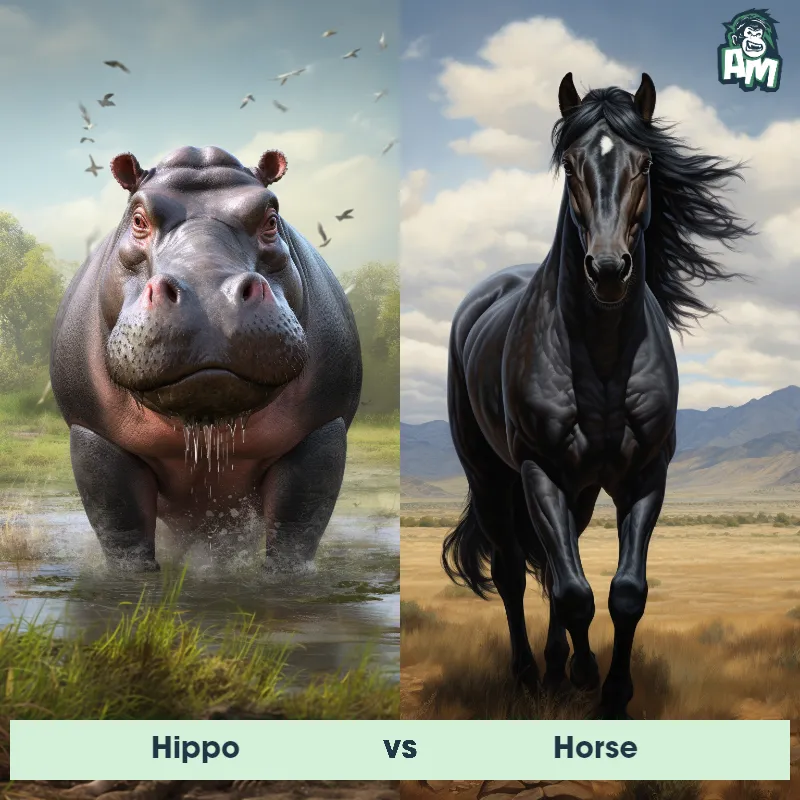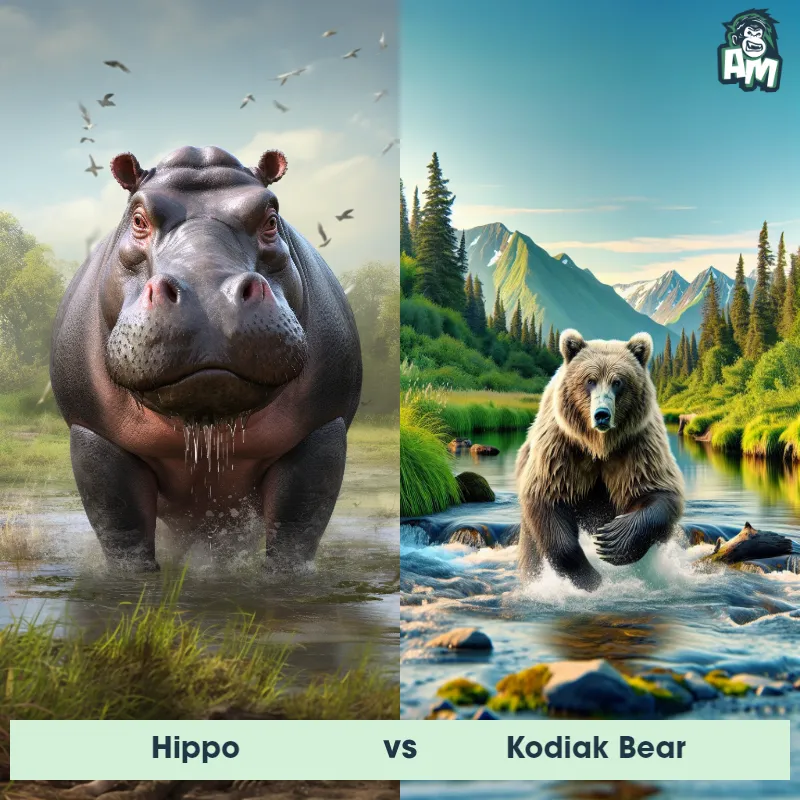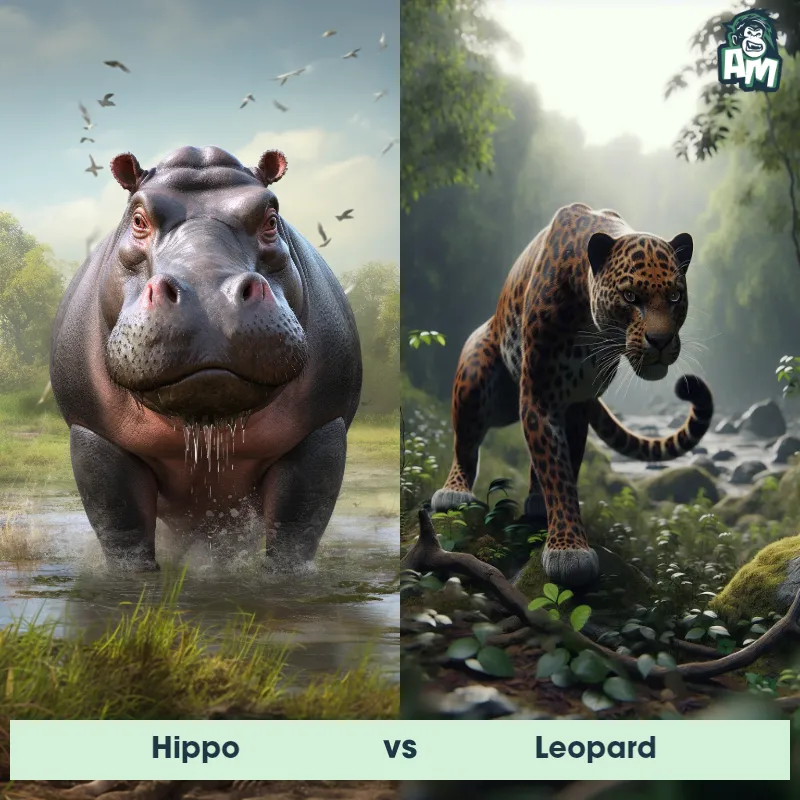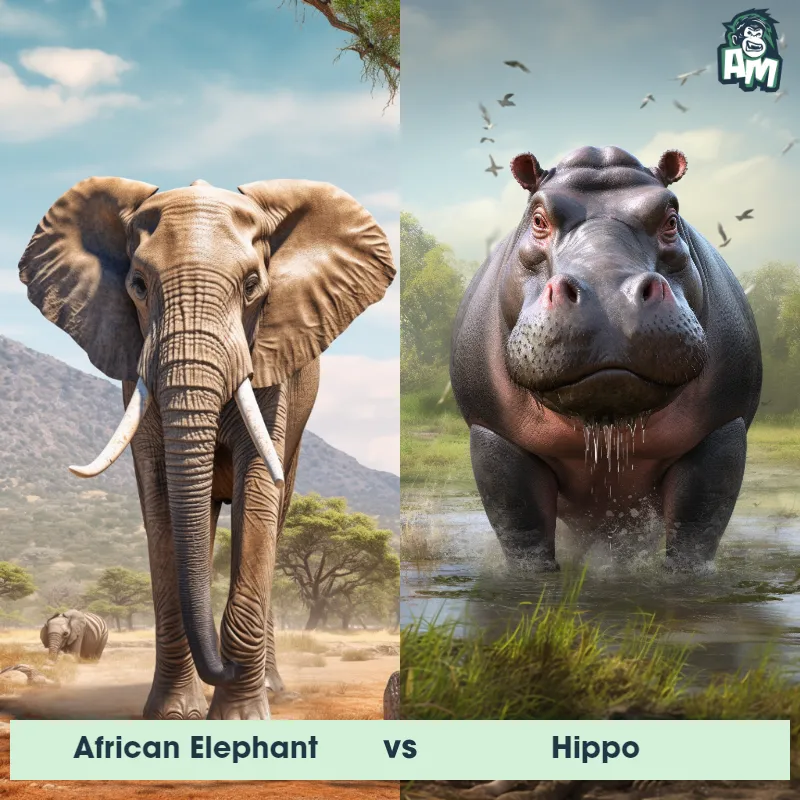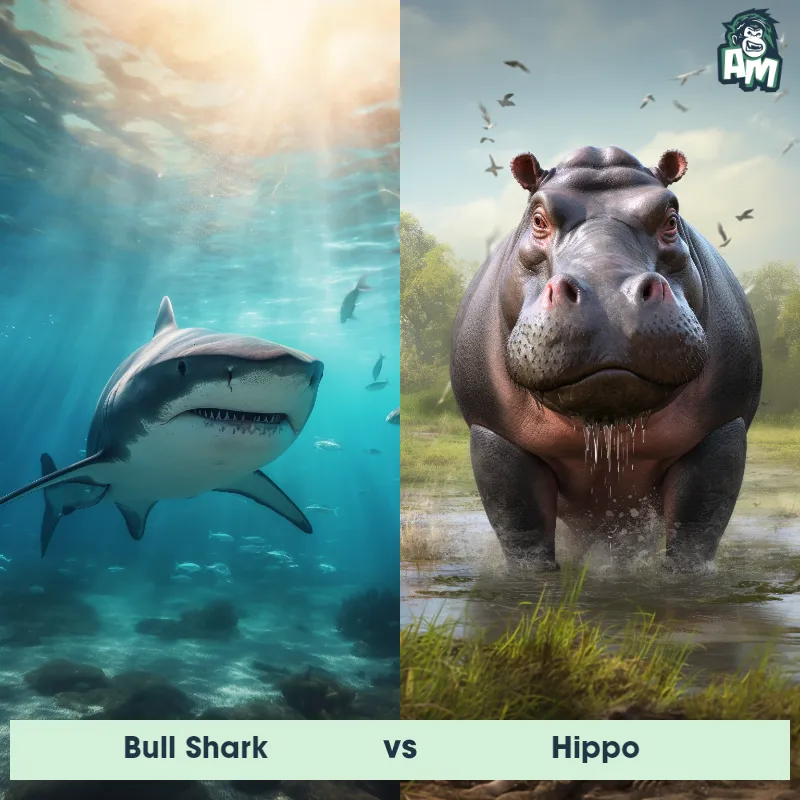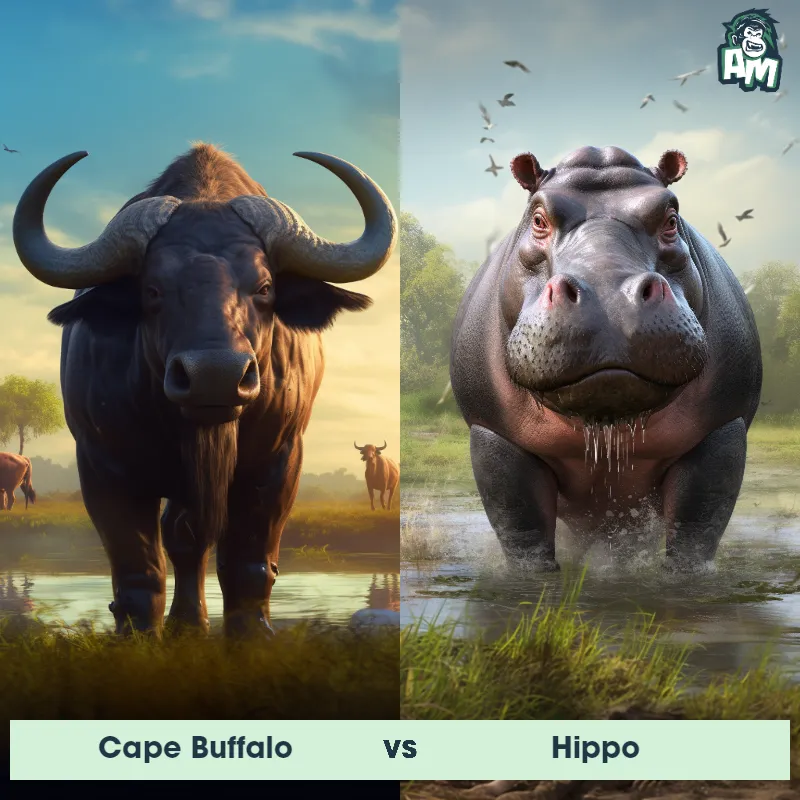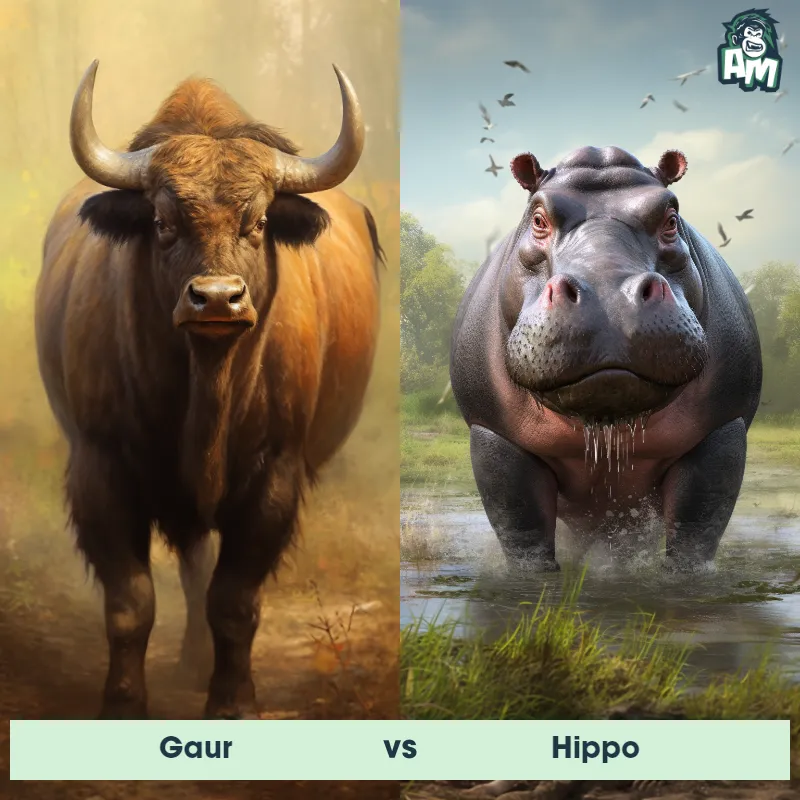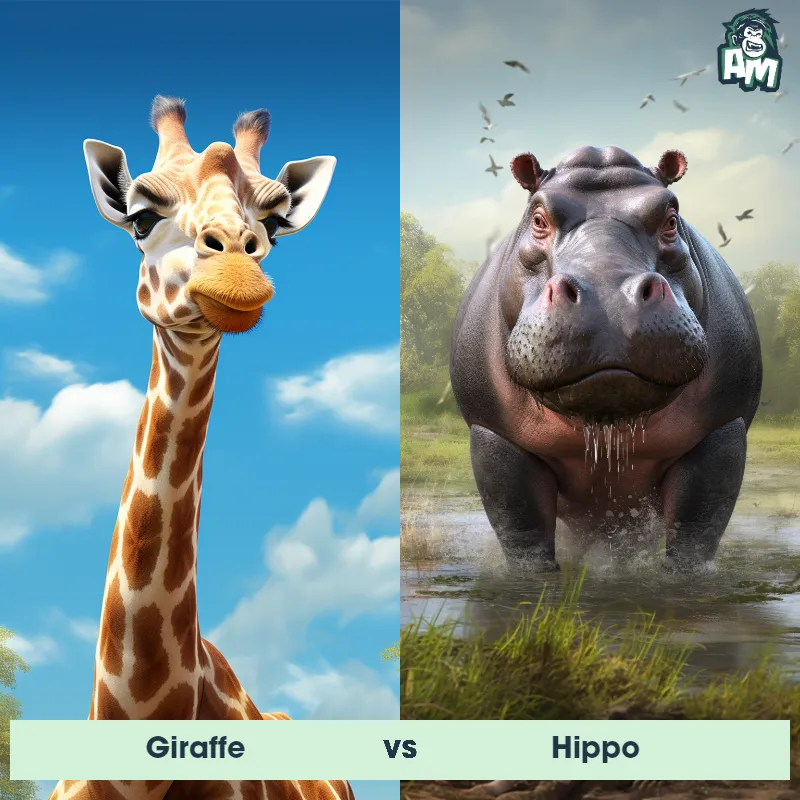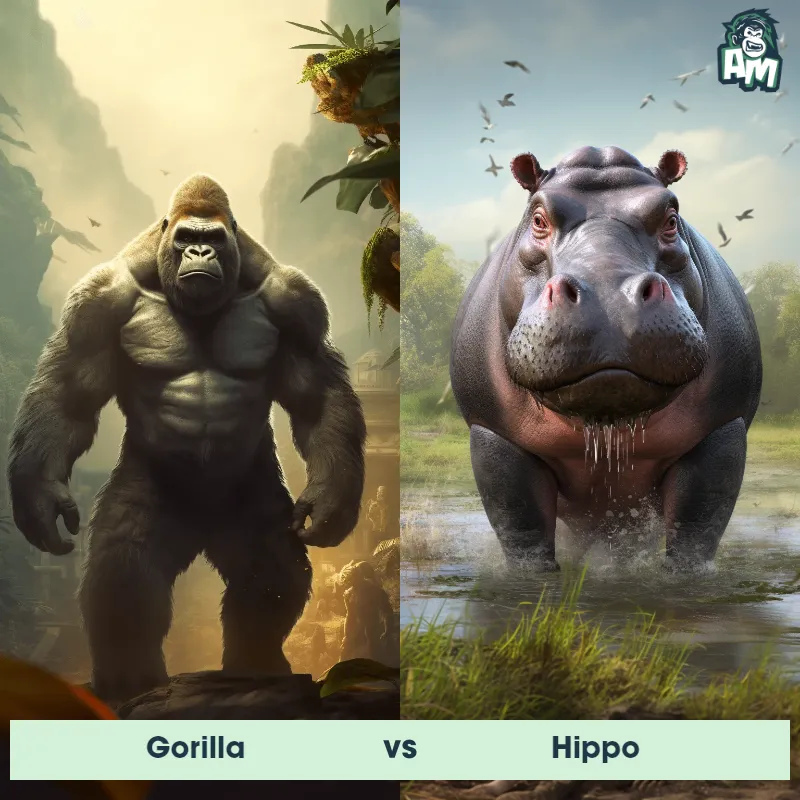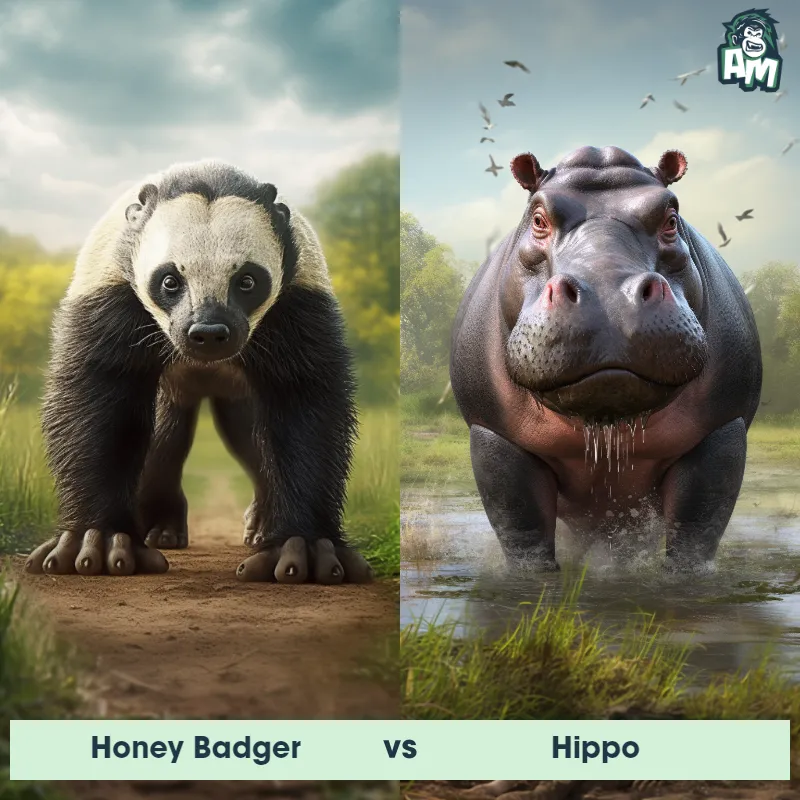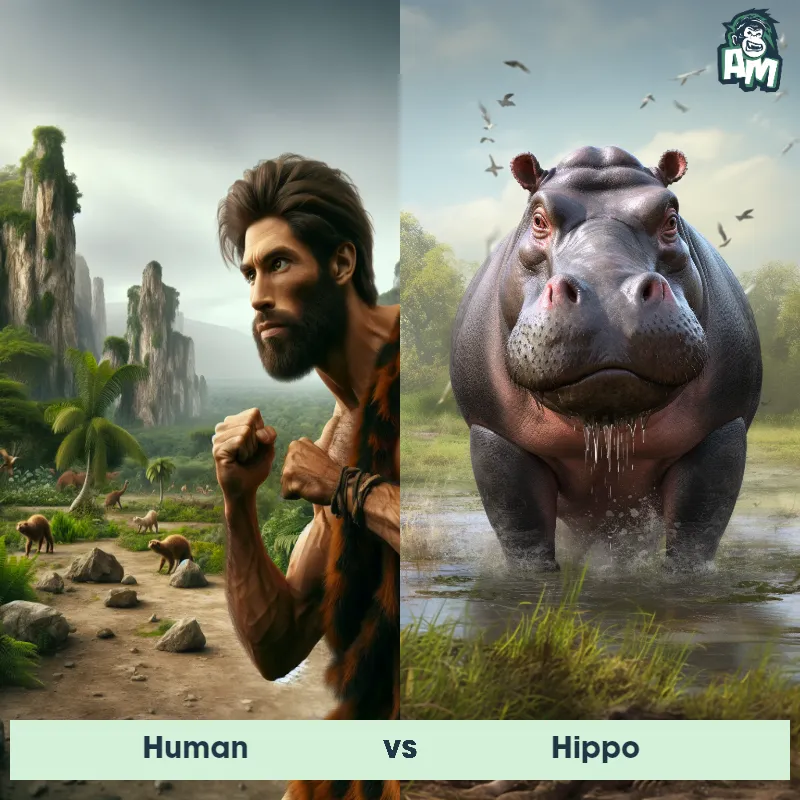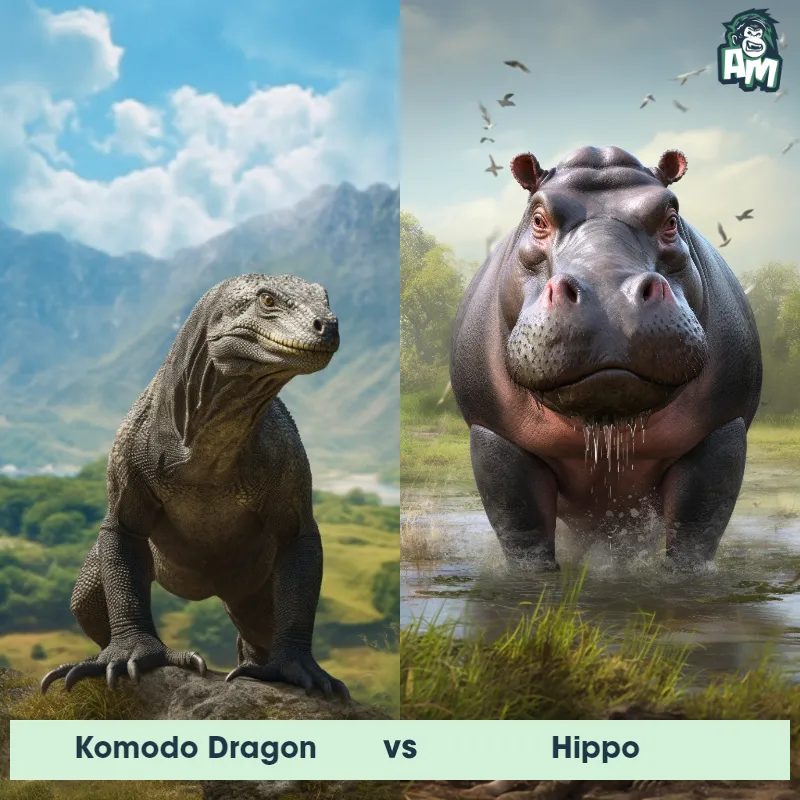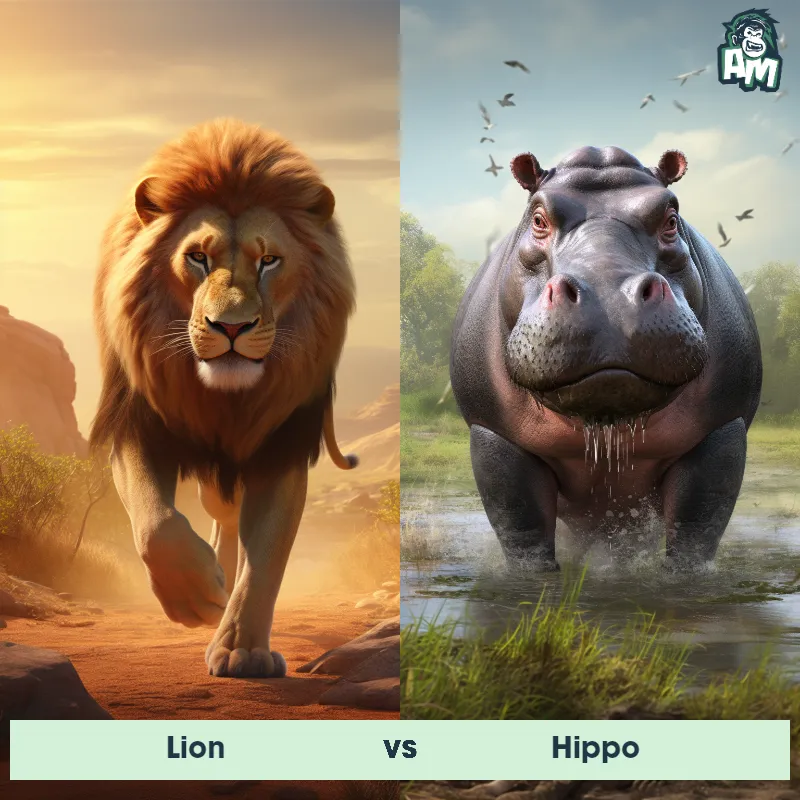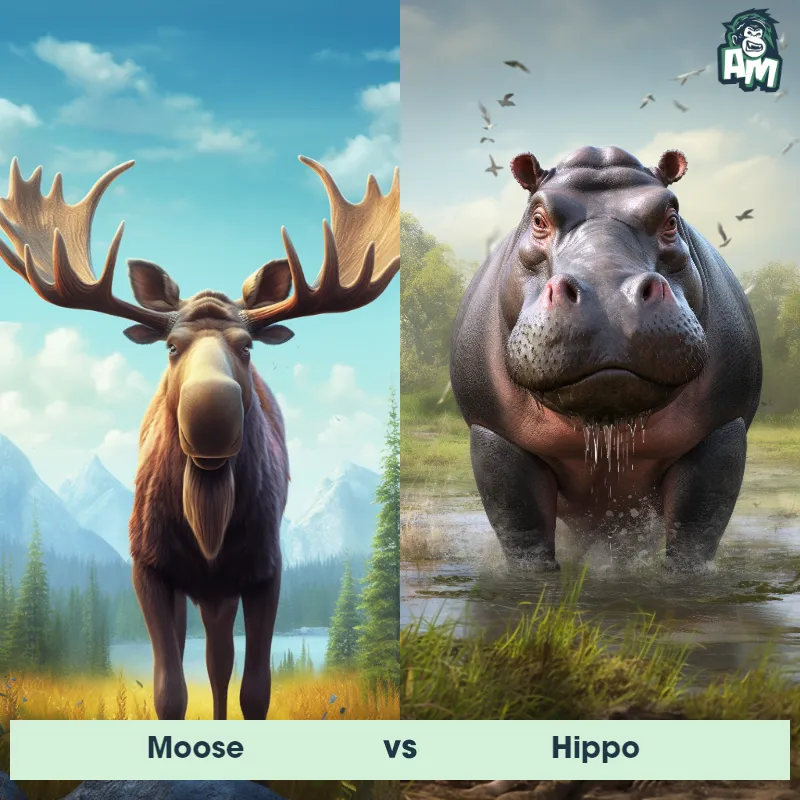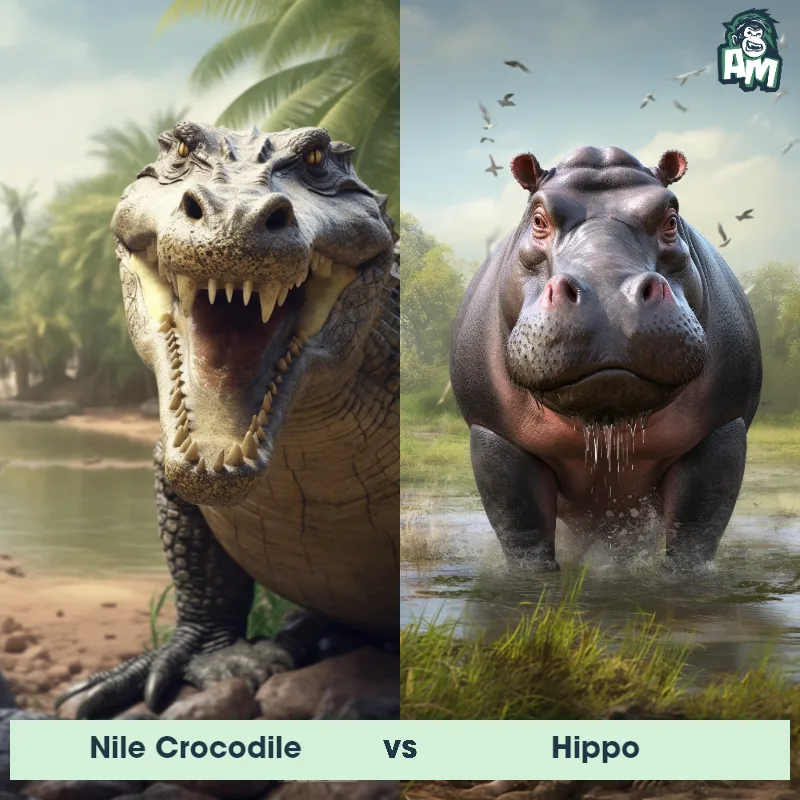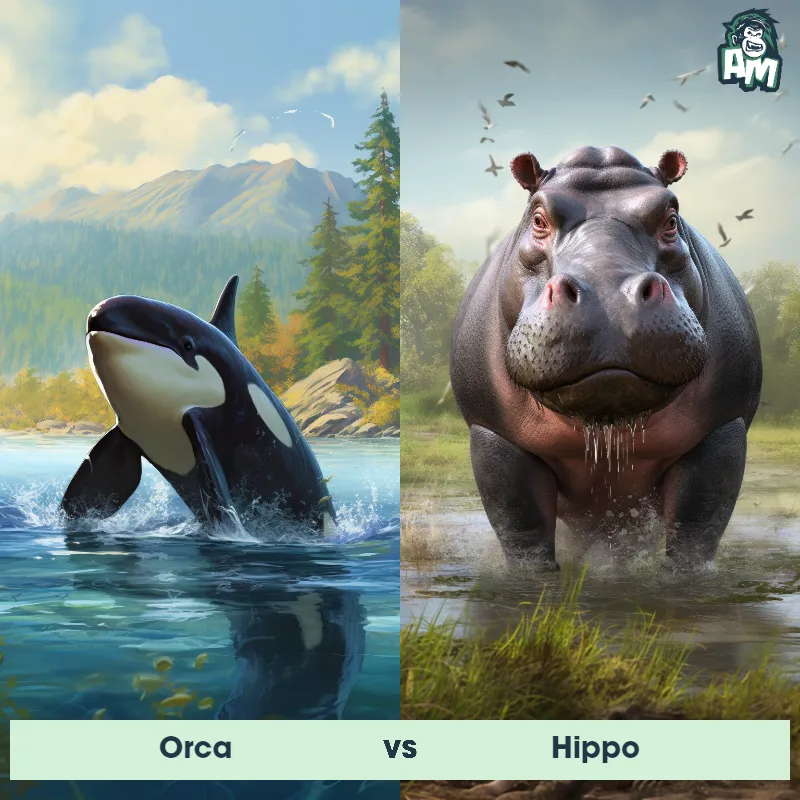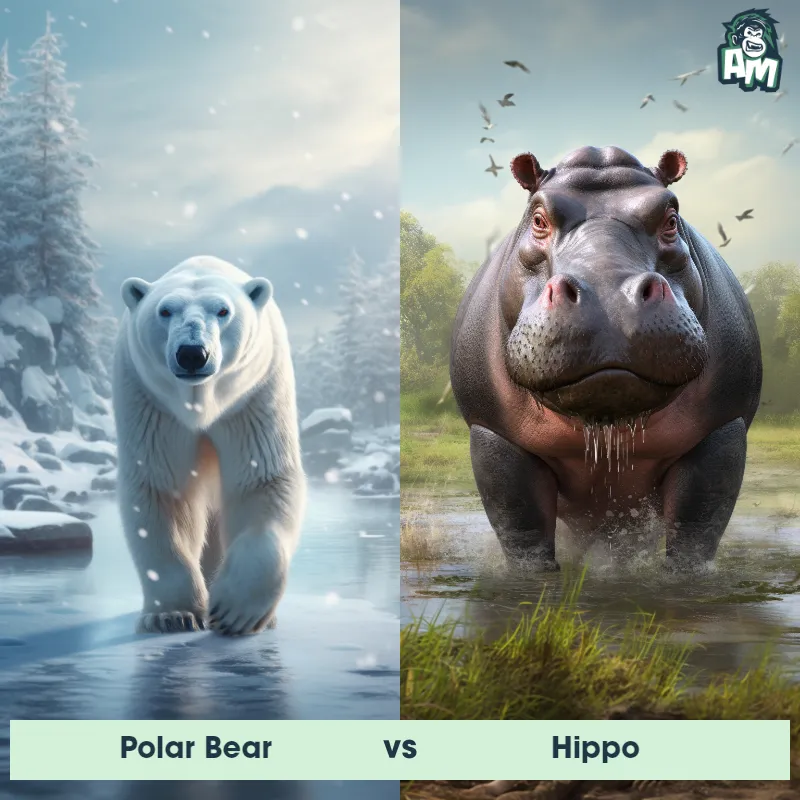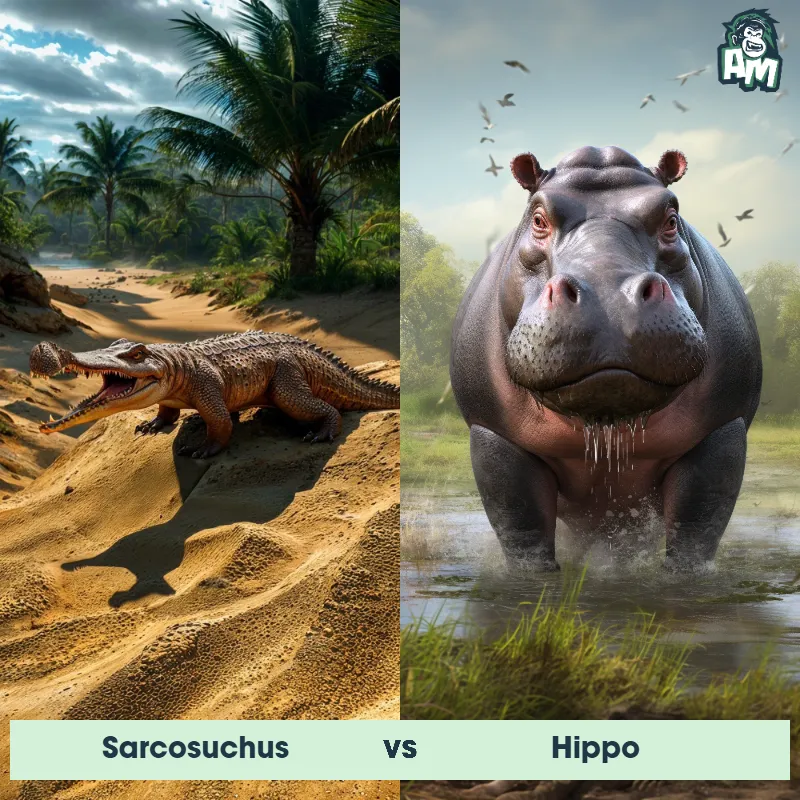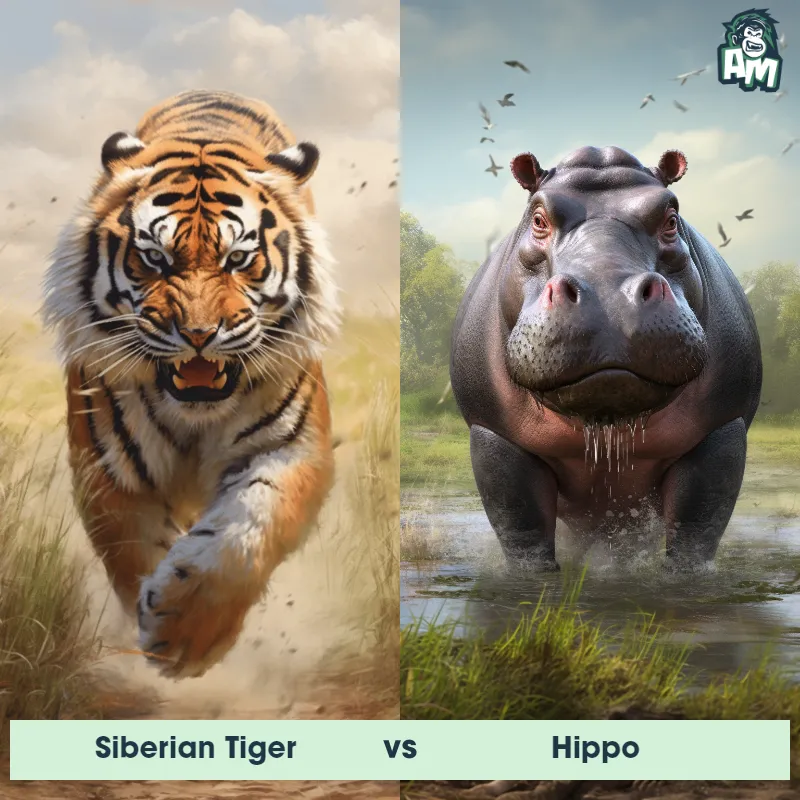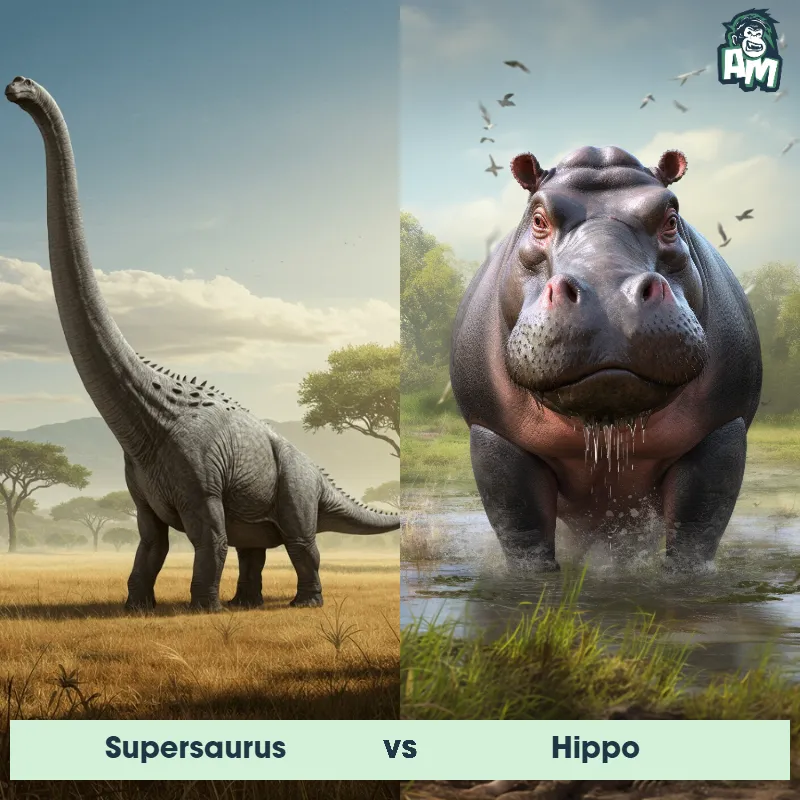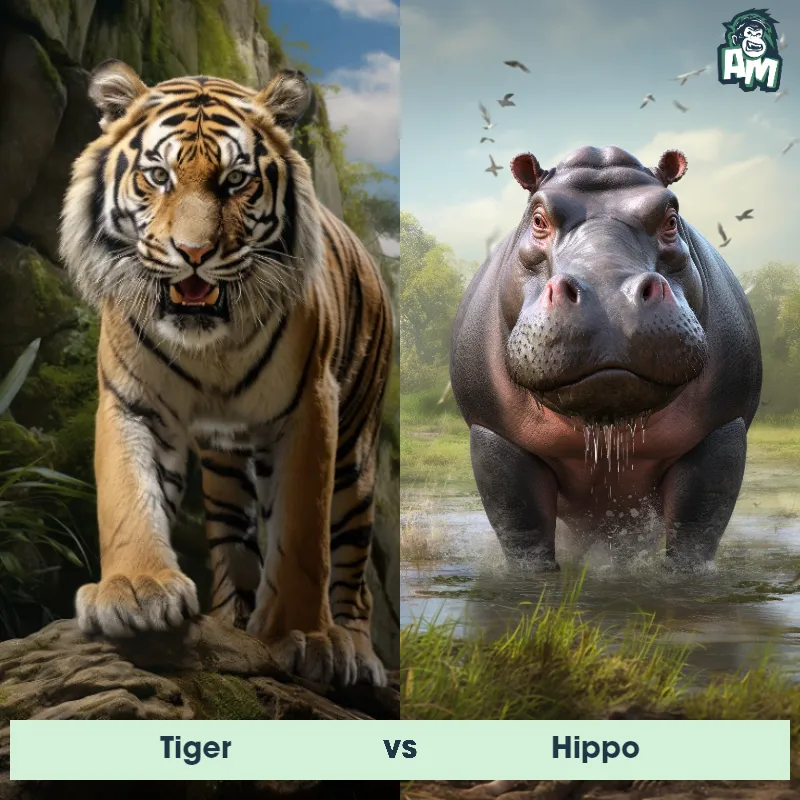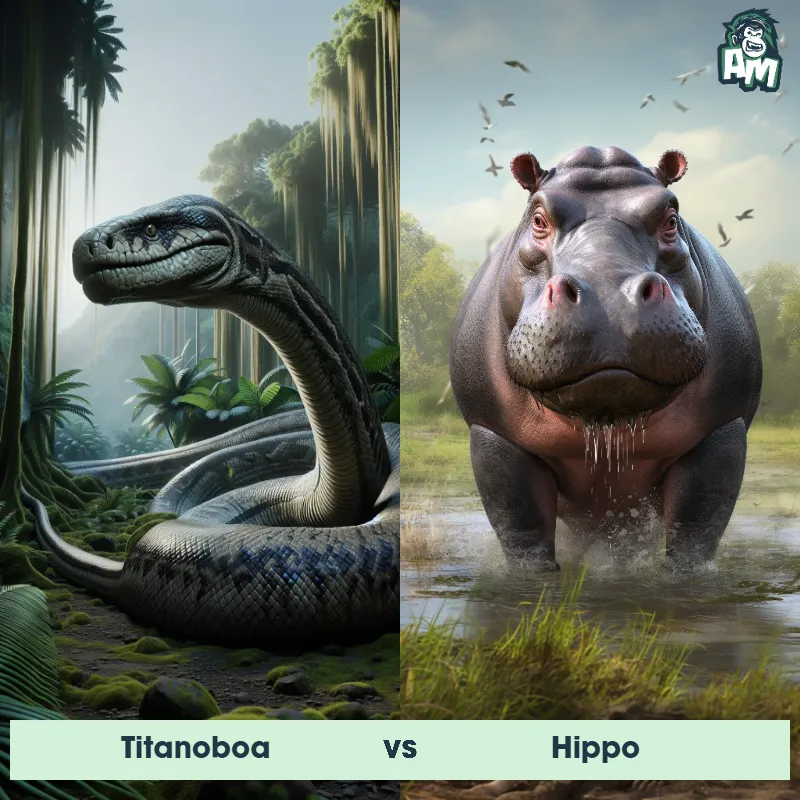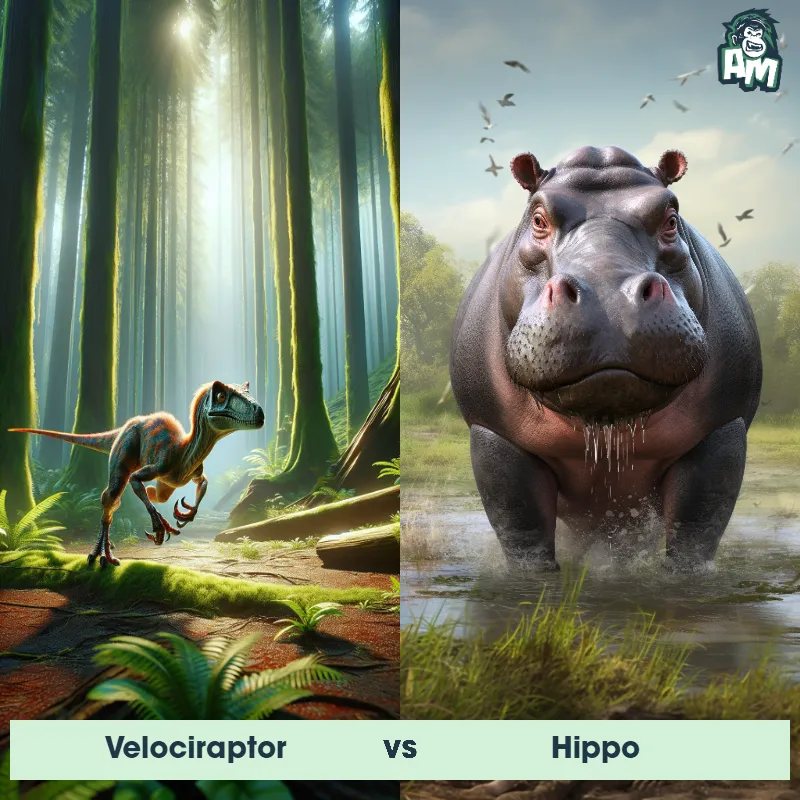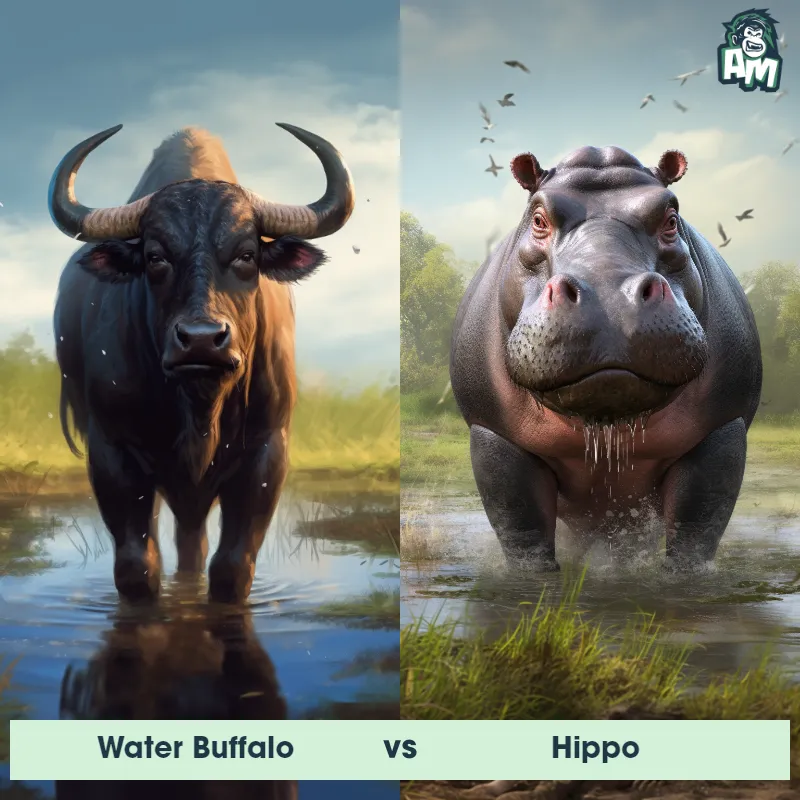The Hippo
The Hippo, also known as the common hippopotamus, is a massive semi-aquatic mammal found in sub-Saharan Africa. It possesses a unique barrel-shaped body that is covered in short, sparse hair, which is typically brown or gray in color. Standing at around 5 feet tall at the shoulder, the Hippo is one of the largest land mammals in the world. It has a massive head with a wide mouth filled with large canine incisors and sharp lower canines, making it a formidable presence in its habitat. Hippos spend most of their time submerged in rivers or lakes, only emerging at night to graze on vegetation, primarily grass.

| Hippo | |
|---|---|
| Size | 5 feet tall at shoulder, 13 feet long (1.5 meters tall at shoulder, 4 meters long) |
| Weight | 3,000 to 4,000 pounds (1,400 to 1,800 kilograms) |
| Speed | 19mph (30km/h) |
| Key Strength | Powerful jaws with large teeth |
| Biggest Weakness | Poor eyesight |
| Scientific Name | Hippopotamus amphibius |
| Family | Hippopotamidae |
| Habitat | Rivers, lakes and swamps |
| Geography | Sub-Saharan Africa |
| Diet | Herbivorous, primarily grasses |
| Lifespan | 40 years - 50 years |

The Hippo
The Hippo, also known as the common hippopotamus, is a massive semi-aquatic mammal found in sub-Saharan Africa. It possesses a unique barrel-shaped body that is covered in short, sparse hair, which is typically brown or gray in color. Standing at around 5 feet tall at the shoulder, the Hippo is one of the largest land mammals in the world. It has a massive head with a wide mouth filled with large canine incisors and sharp lower canines, making it a formidable presence in its habitat. Hippos spend most of their time submerged in rivers or lakes, only emerging at night to graze on vegetation, primarily grass.
Fun Fact: Did you know that hippos are incredibly strong swimmers, capable of holding their breath for up to six minutes and traveling underwater at speeds of up to 8 miles per hour?
| Hippo | |
|---|---|
| Size | 5 feet tall at shoulder, 13 feet long (1.5 meters tall at shoulder, 4 meters long) |
| Weight | 3,000 to 4,000 pounds (1,400 to 1,800 kilograms) |
| Speed | 19mph (30km/h) |
| Key Strength | Powerful jaws with large teeth |
| Biggest Weakness | Poor eyesight |
| Scientific Name | Hippopotamus amphibius |
| Family | Hippopotamidae |
| Habitat | Rivers, lakes and swamps |
| Geography | Sub-Saharan Africa |
| Diet | Herbivorous, primarily grasses |
| Lifespan | 40 years - 50 years |
Match Highlights
Hippo Matchups
We use AI to simulate matchups between the Hippo and other animals. Our simulation considers size, strength, and natural predatory behaviors to determine the most likely outcome.
Hippo: Diet, Predators, Aggression, and Defensive Behaviors
What do Hippos eat?
Hippos are herbivores, primarily consuming grass and other vegetation. They can eat up to 80 pounds of food in a single night. Despite their large size, hippos are not strict grazers; they have been known to eat fruit that has fallen into the water as well.
Do Hippos have any predators?
While adult hippos are typically considered apex predators in their environment, they do have a few natural predators. Nile crocodiles are known to prey on young hippos, as well as lions and spotted hyenas. However, the majority of hippos' threats come from other hippos, due to their territorial and aggressive nature.
Are Hippos aggressive?
Hippos are considered one of the most aggressive animals in the world and are responsible for more human deaths in Africa than any other large animal. They are highly territorial and will attack anything they perceive as a threat, including humans and other hippos. Despite their seemingly docile appearance, they should be approached with caution.
Do Hippos fight?
Hippos are known for their territorial disputes, which can result in aggressive fights between males. These fights typically involve displays of dominance, such as vocalizations, posturing, and physical confrontations. Hippos have incredibly strong jaws and teeth, which they use during these conflicts to establish dominance.
How do Hippos defend themselves?
Hippos have several defense mechanisms to protect themselves from predators and threats. Their thick skin acts as a shield against attacks, and they can run surprisingly fast, despite their large size, to escape danger. Hippos are also excellent swimmers and will often retreat to water to avoid confrontation or danger.
What is Hippos' biggest weakness in a fight?
Despite their size and strength, hippos have a notable weakness in their stamina. While they may have bursts of speed and power, they can tire quickly in a fight or chase. This weakness can be exploited by predators or rivals who are willing to outlast them in a confrontation.
Fun Fact: Contrary to their bulky appearance, hippos are surprisingly agile on land and can reach speeds of up to 20 miles per hour when threatened, despite their immense size.
Fun Fact: Hippos have a unique way of marking their territory. They produce a reddish secretion known as "hippo sweat" which acts as a natural sunscreen and waterproofing agent. This secretion gives their skin a reddish coloration, leading to the misconception that hippos sweat blood.


















